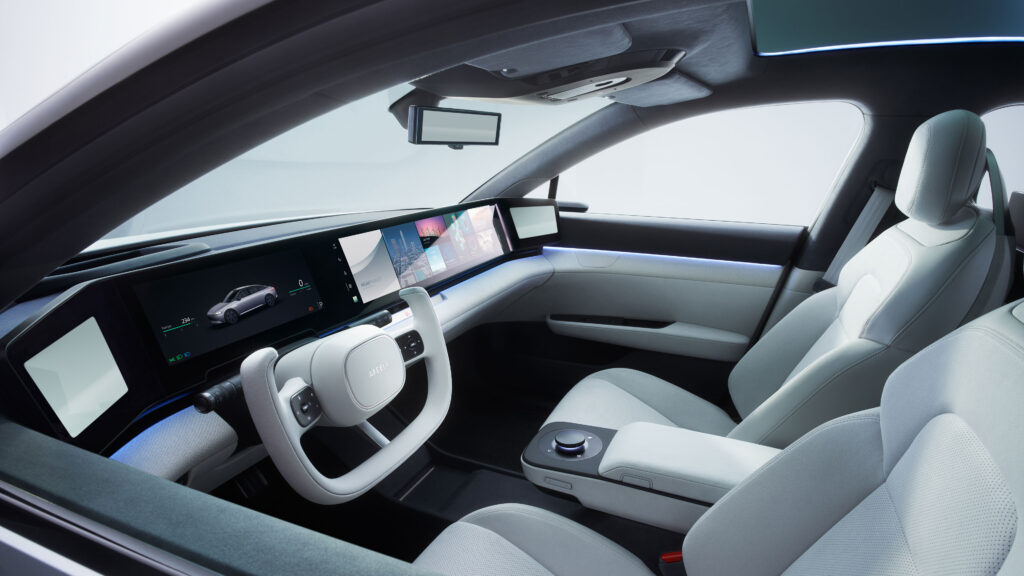He will leave from Nottingham today a tour From the UK by Boosta. From July 23, at the Roman Theater in Brescia, he will bring the Sopsonica musical to Italy Post-Piano Sessionsthe Suite of electronics and piano Divided into six EPs released between 2022 and 2023. A little meditation has been written for us on the speed and depth of listening and the impact of music on our lives. “I miss waking up and knowing that music can change your life.”
Nostalgia is rude, it makes you regret the past: you miss the school years, then you miss the beginning years, then you miss the time. But as the past recedes more and more, one wonders if those sentiments can ever be reclaimed, if music can still shake the foundations.
A brief and incomplete summary, a journey through the sonic revolutions that have lit fires for generations and shook up the music landscape: At the beginning of the 20th century electricity arrived and the possibility to hear one’s voice again. This was the first revolution, transcending the canons, and research that embraced the artistic and technological fields, expanded artistic horizons and began to set boundaries for creativity. In the 1950s and 1960s, rock music ignited the foundations of youth culture, then rhythm and hippie culture, experimenting with psychedelia and song as a voice of protest, and becoming a symbol of rebellion and the will to change. It was an age of exploration and musical revolution, as artists like Elvis Presley, the Beatles, and the Rolling Stones redefined popular music. Rock music broke down generational barriers and gave voice to a young man eager to express his identity.
In the 1970s, progressive rock and disco clashed like knights in a medieval duel. Progressive rock pushed the boundaries of traditional music, challenging conventions and creating elaborate and experimental compositions. At the same time, disco brought rhythm and a desire to dance to clubs around the world, becoming a real cultural phenomenon. In the 1980s, music began a profound transformation, from being proactive it began to assume, with increasing conviction, the role of soundtrack to a fun-filled lifestyle. The beginning of a new era: rock more melodic and commercial, pop music softened, the advent of MTV reshaped and enhanced visual entertainment, and, perhaps for the first time, the balance moved to the palette of image and popularity by placing the concept of celebrity as a basis.
The 90s, between grunge and electronics, raised their heads and hearts, bringing a different energy and rebellious identity. Rock has put the person and his difficulties back at the center, and electronics, also thanks to the evolution of technology, are beginning to explore again, exploding from underground bushes to taking over the main stage and redesigning much of the compositional base. I heard even then. Then came the first decade of the twenty-first century. Zero and point (OK, maybe I’m exaggerating). We’d say, in the 2000s, those of high-tech and platforms, dilute listening, swiping, and searching for more appropriate vocabularies as if words and concepts weigh exactly as much as a byte in a subscription. The threshold of public attention has been lowered by the collapse of the dam that held back information, and the speed of new means of communication has begun to produce masses of data that have made it necessary to be superficial in acquiring knowledge.
I know it’s a disastrous vision, but the title of this little meditation is asking me, I’ll save all the good stuff for another moment. So, the question arises: Does music still make revolutions, or do revolutions no longer make music? Speed has become the hallmark of much of the present, but to be fast one cannot go deep. This is an undeniable fact. Knowing how to listen is a vulnerable skill. Attention is divided between notifications, social media, and thousands of distractions that make it difficult to truly immerse yourself in the music. But despite the challenges and changes, music still exists and plays a vital role in our lives. The universal instrument, which we can use for any purpose, writing and listening to music must, in the best way possible, continue to influence us. There is a search, the concert audience always crowds under the heat and in front of the stage, there will always be texts to write in the diary (or in the next post).
“I can be superficial, in a few lines it’s hard to talk about one of the most important things in my life.” But music is so powerful, it speaks to us and it speaks to us, it will never end, and it will be useful in every situation. There will always be songs that accompany us in our days and moments that are intimately connected to our personal soundtrack. But, right now, I miss waking up and knowing that music can change your life. We lack the enthusiasm to allow ourselves the trunk of melodies that touch us deeply, to share feelings through words and sounds. There is a lack of awareness that music is a powerful medium for human expression and communication.
Despite the changes and challenges facing music in the modern world, there is a need to continue to grow our ability to hear and appreciate music.





